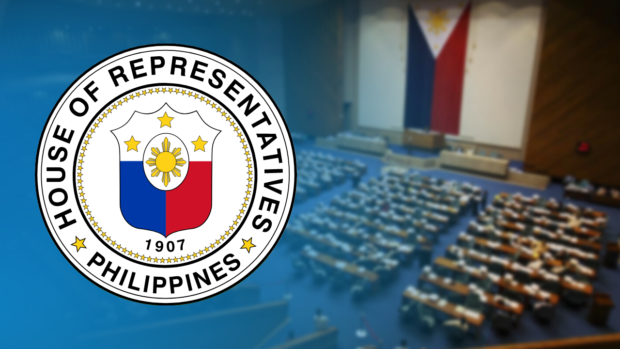
The proposal to create a Virology and Vaccine Institute of the Philippines (VIP) earned the approval of the House of Representatives on its third and final reading on Monday.
MANILA, Philippines – The proposal to create a Virology and Vaccine Institute of the Philippines (VIP) earned the approval of the House of Representatives on its third and final reading on Monday.
A total of 216 lawmakers approved House Bill No. 6452, or the Act Establishing the Virology and Vaccine Institute of the Philippines, which is among the priority measures mentioned by President Ferdinand “Bongbong” Marcos Jr. during his first State of the Nation Address last July.
House Speaker Martin Romualdez, who was among the principal authors of the bill, said the measure is pushing for the creation of a VIP with the following objectives:
- Serve as the lead convener for the formulation of the National Virology Research Agenda
- Undertake scientific and technological research and development in the field of virology
- Conduct product research and development in the areas of diagnostics, therapeutics, and vaccines in cooperation with the private sector and concerned agencies
- Promote and undertake the transfer of the results of scientific research and development in collaboration with government agencies, industry, and the academe
- Promote, advocate and oversee virology research ethics, biosafety, and biosecurity
- Develop and maintain an information system on virology science and technology for use by both the public and private sectors;
- Develop and implement, together with other entities concerned, programs for strengthening scientific and technological capabilities in virology and relevant disciplines through human resource development, infrastructure, and institution building
- Undertake policy research, and other related studies on virology
- Provide laboratory and technical services on virology
- Promote and advocate the national programs on virology science and technology
- Establish linkages with local and international partners
The VIP will have a policy-making governing board with the Department of Science and Technology (DOST) chief as its chairperson and the Health and Agriculture Department’s Secretaries as its co-chairpersons.
Members from the Department of Environment and Natural Resources, Department of Foreign Affairs, Commission on Higher and Technical Education, Research Institute for Tropical Medicine, and Food and Drug Administration, among other agencies, will also join the body’s governing board in protecting any VIP-developed intellectual property funded from the Filipino people’s taxes.
‘Yes with reservations’
Although voting in the affirmative, Rep. France Castro of the Alliance of Concerned Teachers (ACT) party-list expressed reservations about the proposed measure.
She acknowledged the importance of having a VIP to restore the country’s capacity to produce and develop vaccines, noting that the Philippines was previously able to manufacture vaccines for smallpox and rabies, among others, through its Serum and Vaccine Laboratory in Muntinlupa City.
The lawmaker also cited that in 1939, the Philippines could even donate vaccines to China.
Castro then aired worries that the VIP would succumb to privatization as the bill includes a section for private-public partnerships, tasking the DOST, Department of Trade and Industry, Department of Health, Department of Agriculture, and the public-private partnership center to work together “for the development of new industries, products, and services where the VIP shall be the main research and development unit.”
“Ayaw natin na pagkakakitaan lamang ng pribadong sektor ang mga bakunang made and developed ng VIP at sa kalaunan, tayo pa ang bumili ng mga bakunang tayo ang nag-develop dahil wala itong kakayahan na mag-produce nito,” Castro underscored.
(We don’t want the private sector to profit from the vaccines made and developed by the VIP, and in the long run, we would have to buy the vaccines we developed because we no longer can produce it.)
She further pressed for Filipino scientists and researchers to have a patent in their works related to developing vaccines and other medicines.
“Dapat masiguro na taong bayan ang makikinabang sa VIP at hindi pagkakakitaan ng pribadong sektor. Dapat masiguro na dapat ay abot kamay at libre iyong mga made-develop na mga bakuna sa mga susunod na pagkakataon at panahon,” Castro added.
(The Filipino people should benefit from the VIP, and the private sector should not merely make money out of this. We should ensure that the vaccines that will be developed by the VIP in the future will be accessible and free.)